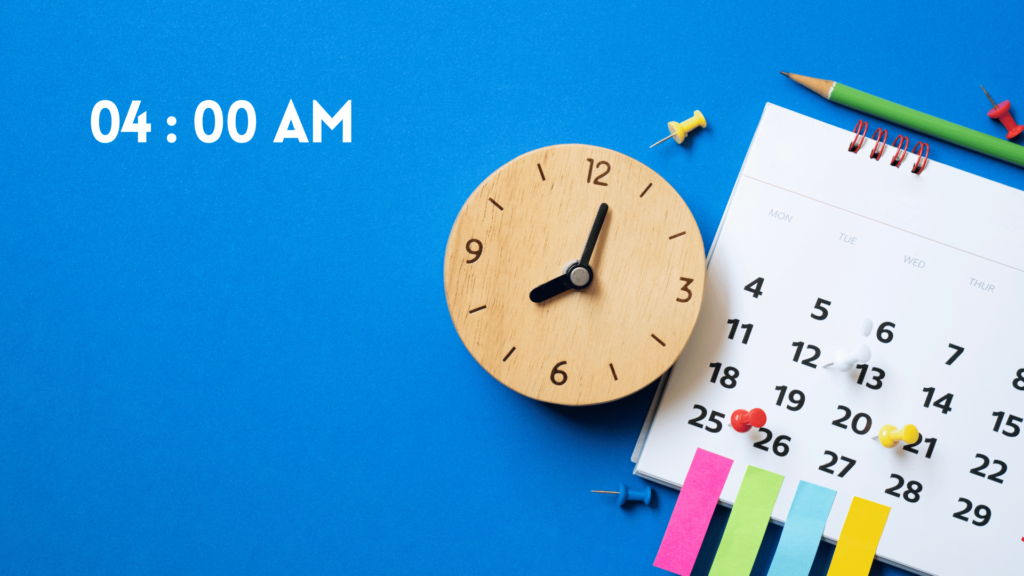Table of Contents
When we set a goal, we focus on how to achieve it and thereby change our lives. One of the first steps in this journey is to evaluate our daily routine. Our daily habits shape our personality, influence the balance in various aspects of our lives, and determine the time needed to reach our goals.
Many of us spend countless hours pondering our daily tasks and routines. However, maintaining these routines often proves challenging because they may not align with our natural body clock rhythms. Additionally, while it’s common to jot down our routines on a computer, there’s a unique significance to physically writing them down on paper, especially when establishing a foundational routine.
Here, I will talk about the foundational mindset in the daily routine and give you a guideline to make your daily routine effective. Let’s talk about them.
🧠 Mindset:
- Routine should not be emotionally dependent or unrealistic.
- Include tasks with importance and relevance based on priority.
- Organize tasks based on the biorhythm.
- Take mini breaks.
- Update the routine periodically.
🖋 Foundation:
⏰ Morning (4:00 AM – 9:00 AM):
- Rise early to synchronize with your body’s natural rhythm.
- Commence your day with prayer, a source of spiritual energy.
- Engage in a brief exercise session to invigorate your body. Exercise not only shapes your physique but also uplifts your mood, diminishes stress, and sharpens cognitive abilities.
- Consider taking a shower (Optional but highly effective). Morning showers invigorate you and leave you feeling refreshed for the day!
- Follow the SAVERS Rule (Silent, Affirmation, Visualization, Exercise, Reading, Scribing) by writing down all of your tasks on paper (most recommended), but you can take this digitally (as you prefer). Allocate time for important tasks requiring peak mental focus.
- It’s advisable to study in the morning while fasting. According to Andrew Huberman, your body expends 60% of its energy on digesting food during this time. Aim to fast or, at most, have a cup of coffee during your morning study session. You can enjoy your meals after completing the morning session.
⏰ Late Morning (9:00 AM – 1:00 PM):
- Follow the Pomodoro Technique when studying. (Which is effective for all people with break time)
- Engage in activities that require creativity and problem-solving skills, as biorhythms typically peak during this time.
- Attend classes or participate in group discussions to enhance learning and social interaction.
- Take short breaks between tasks to maintain focus and prevent burnout.
- If you can, I highly recommend you take a Power Nap (which can be 26 to 60 minutes).
- If you do not shower in the early morning, before 1 PM, you can take a shower according to your daily work. (Because if your institution time is 9 AM to 4 PM, you should shower before 9 AM.) But listen, all people are unique; I can’t follow your routine, and you can’t follow mine. But you can relate your routine with effective people to manage your time.
⏰ Afternoon (1:00 PM – 3:00 PM):
- Enjoy a balanced lunch to replenish energy levels.
- Use this time for less mentally demanding activities, such as review sessions or practicing skills.
⏰ Late Afternoon (3:00 PM – 6:00 PM):
- Resume academic tasks, focusing on subjects that require attention to detail.
- Take advantage of the body’s natural dip in energy levels by engaging in physical activity or a brief power nap to recharge.
- Spend time with Family, Doing Exercise, Playing Football, Cricket, etc (for your mental well-being and feel stress-free life)
⏰ Evening (6:00 PM onwards):
- Allocate time for extracurricular activities, hobbies, or socializing with friends to maintain a balanced lifestyle.
- Have a light and nutritious dinner to support overall health and well-being.
- Wind down with relaxing activities such as reading, listening to music, or spending time with family.
- Set aside time for reflection and planning for the next day, updating your routine as needed based on your experiences and biorhythms.
🎯 3-2-1 Rule:
3 hours before bed:
- Finish Dinner before 3 hours of sleep.
- Avoid heavy meals: Consuming heavy or large meals close to bedtime can disrupt your sleep and digestion. Aim to finish eating at least three hours before going to bed to allow your body enough time to digest food properly.
2 hours before bed:
- Finish Drinking water before 2 Hours of sleep.
- Limit caffeine intake: Caffeine can interfere with your sleep quality. Avoid consuming caffeinated beverages like coffee, tea, or soda within two hours of bedtime.
1 hour before bed:
- Stop all digital devices before 1 hour of sleep.
- Self-criticise.
Keep in Mind: Sleep before 10 PM.
“Early to Bed, Early to Rise”




